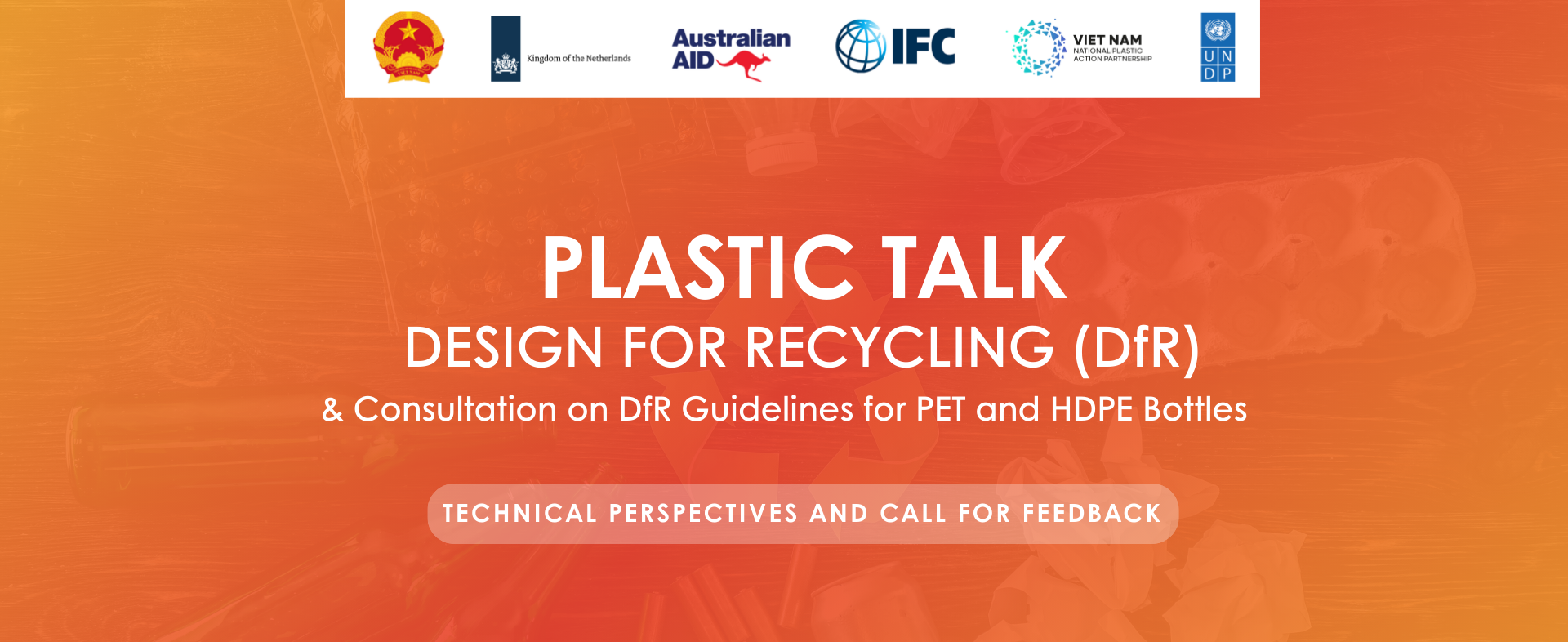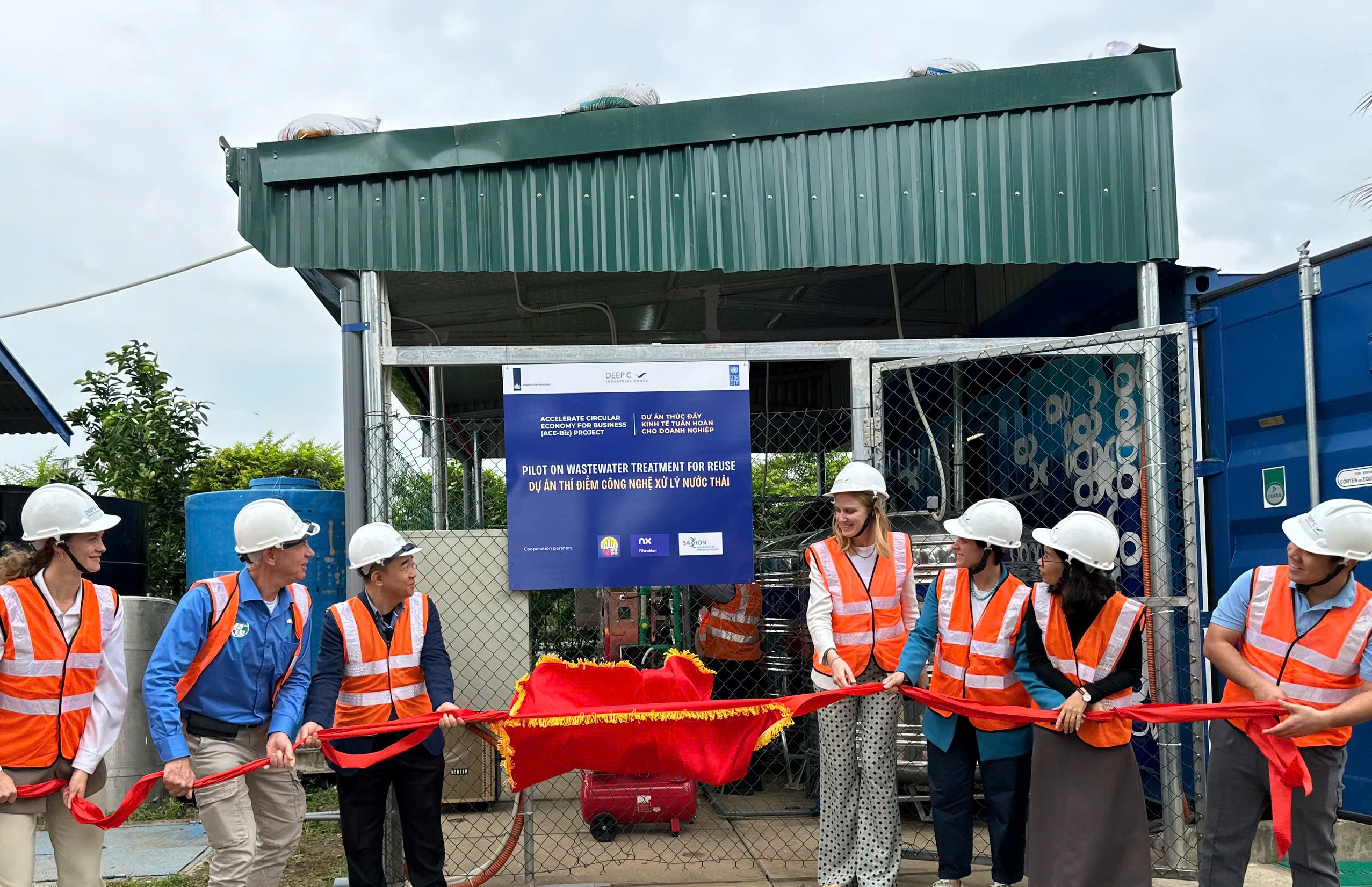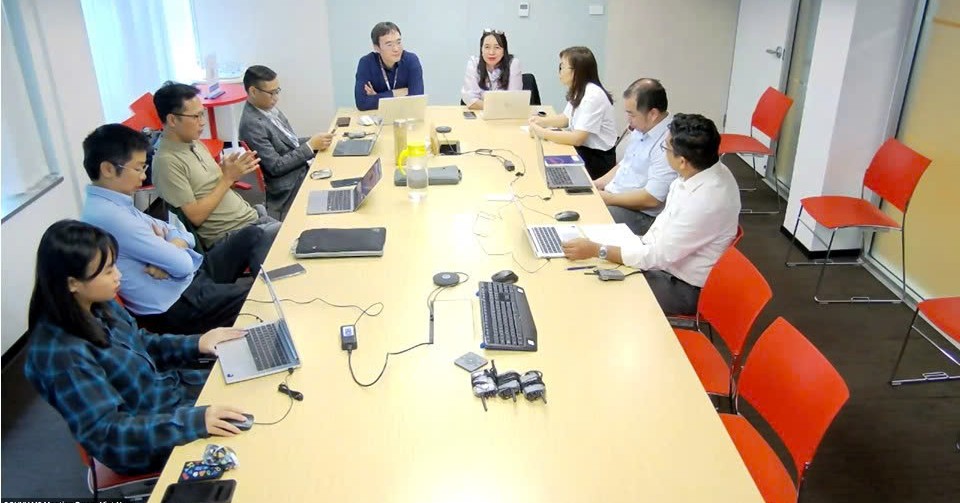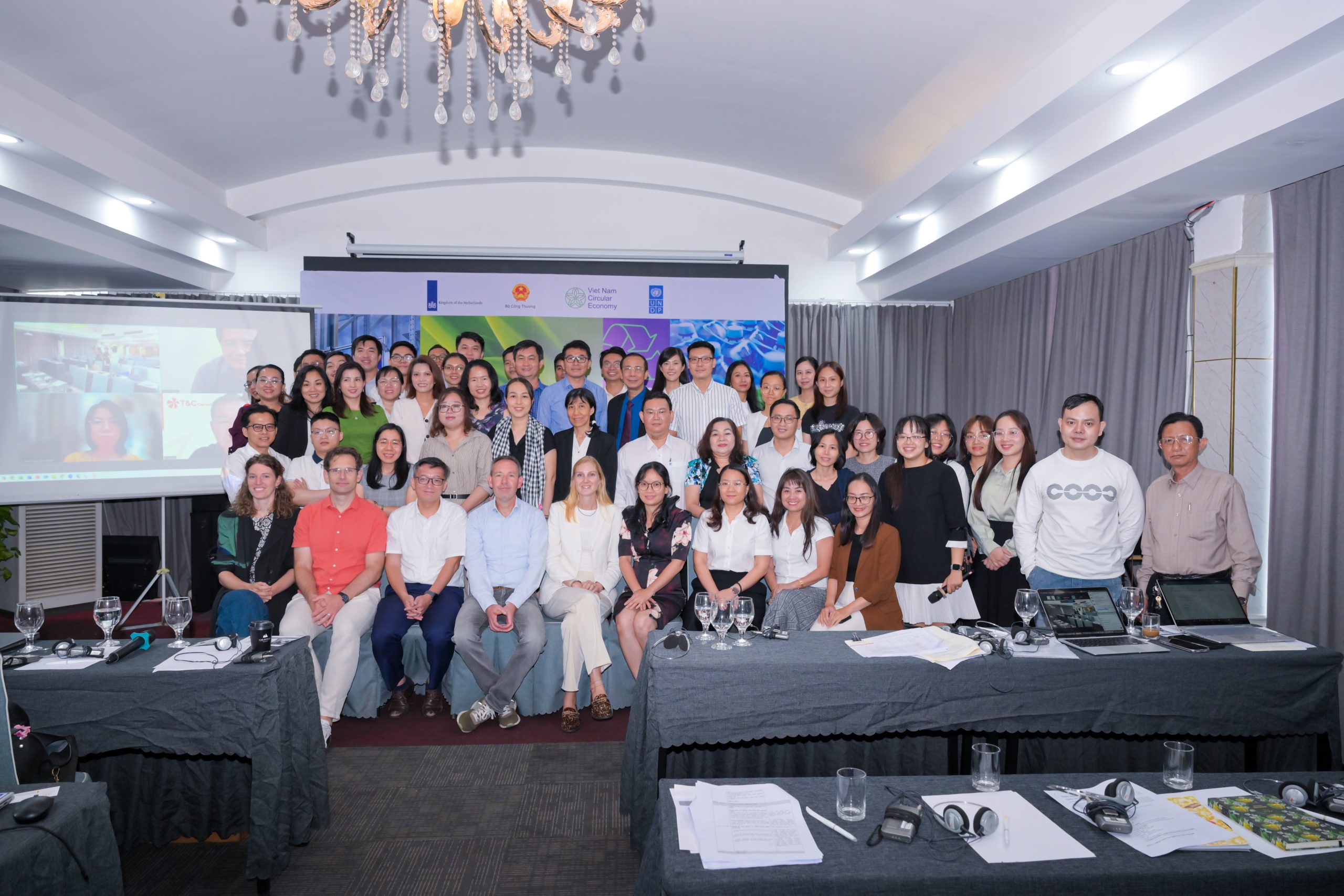
Ho Chi Minh City, July 14–18, 2025 – Over 100 representatives from businesses, industry associations, state agencies, international organizations, and research institutes participated in training program on Circular Economy and Sustainable Production and Consumption.
The program was jointly organized by the Ministry of Industry and Trade (MOIT) and the United Nations Development Programme (UNDP) as part of the “Accelerate Circular Economy for Businesses” (ACE-Biz) Project, with generous funding from the Kingdom of the Netherlands.
Held in Ho Chi Minh City, the program included a basic training course on July 14, followed by two specialized courses: one for the plastics sector (July 15–16) and another for the textile industry (July 17–18). These sessions were conducted in a blended format, combining in-person and online participation.
The program featured expert instructors from Saxion University of Applied Sciences (Netherlands), alongside Vietnamese specialists from UNDP, the Institute for Circular Economy Development (ICED), the Vietnam Metrology, Quality and Standards Institute (VSQI), various industry associations, consulting firms, and pioneering Vietnamese manufacturing businesses actively practicing circularity.
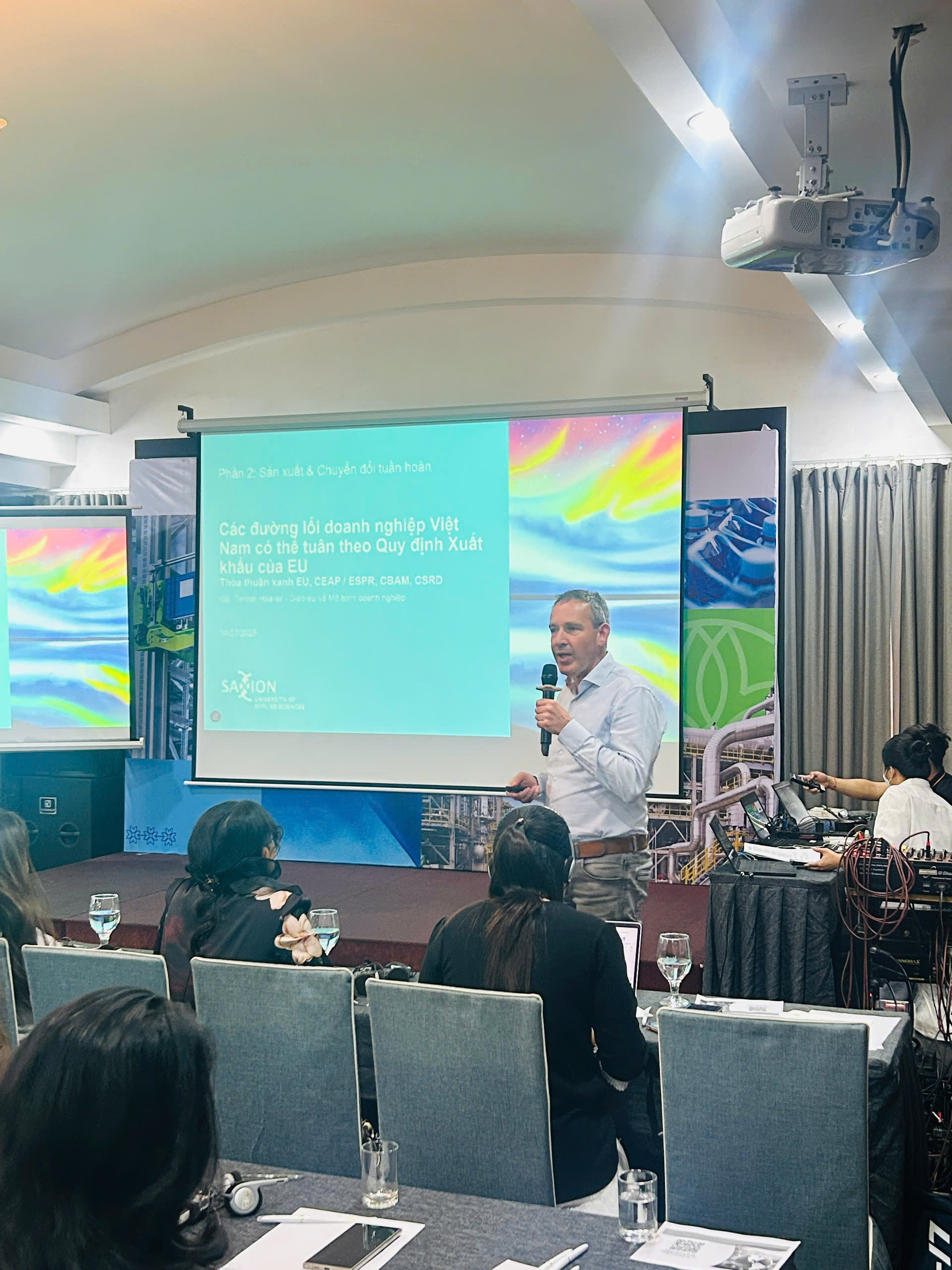
During the opening ceremony, Mr. Patrick Haverman, Deputy Resident Representative of UNDP in Vietnam, emphasized: “The circular economy is no longer a concept of the future – but an urgent requirement of the present.” He highlighted that as consumers increasingly prioritize sustainability and global supply chains impose stricter environmental standards, circular business models offer opportunities for innovation, cost savings, and market differentiation. “Therefore, for businesses, circularity is not just a responsibility, but a cornerstone of competitiveness and adaptability,” he underscored.
Ms. Nguyen Thi Lam Giang, Director of Agency for Innovation, Green Transition and Industry Promotion, Ministry of Industry and Trade, stressed that “businesses are grappling with significant pressures and challenges related to resource and energy use, as well as complying with the green and sustainable requirements and standards of international markets.” She added that “adopting sustainable and circular models offers practical benefits and new market opportunities for green, eco-labeled products.”
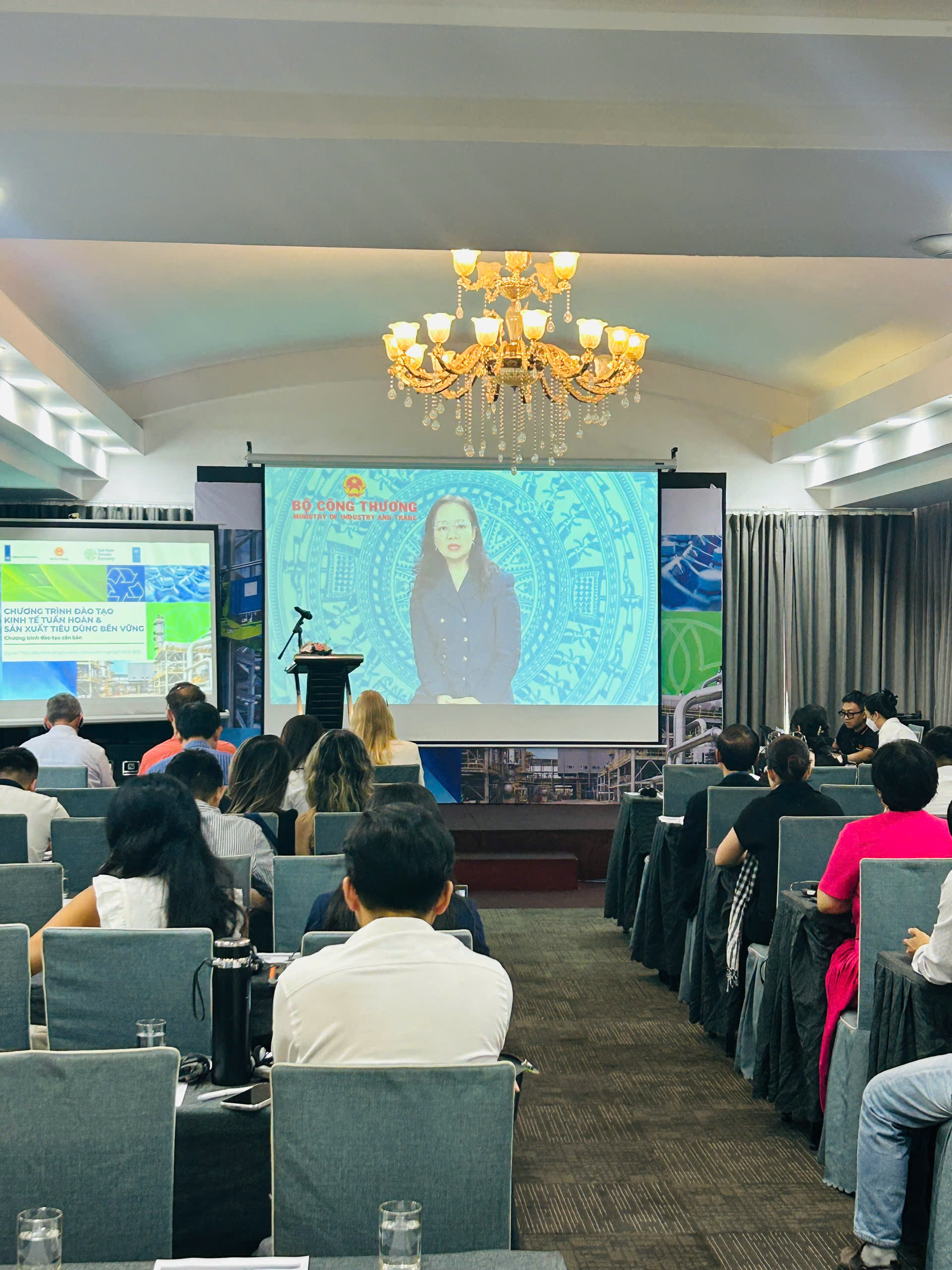
The program focused on providing comprehensive information on international and national policies and trends, including the European Green Deal, Carbon Border Adjustment Mechanism (CBAM), and the Ecodesign for Sustainable Products Regulation (ESPR). It also covered domestic legal frameworks such as the Environmental Protection Law 2020, the Decree on Extended Producer Responsibility (EPR), the National Action Plan for Circular Economy Implementation, MOIT’s policies promoting CE, and the National Action Program on Sustainable Production and Consumption for 2021-2030. Additionally, participants were introduced to technical tools like Life Cycle Assessment (LCA), Higg FEM, and guidance on applying the ISO 59010:2024 standard for circular business model transition.
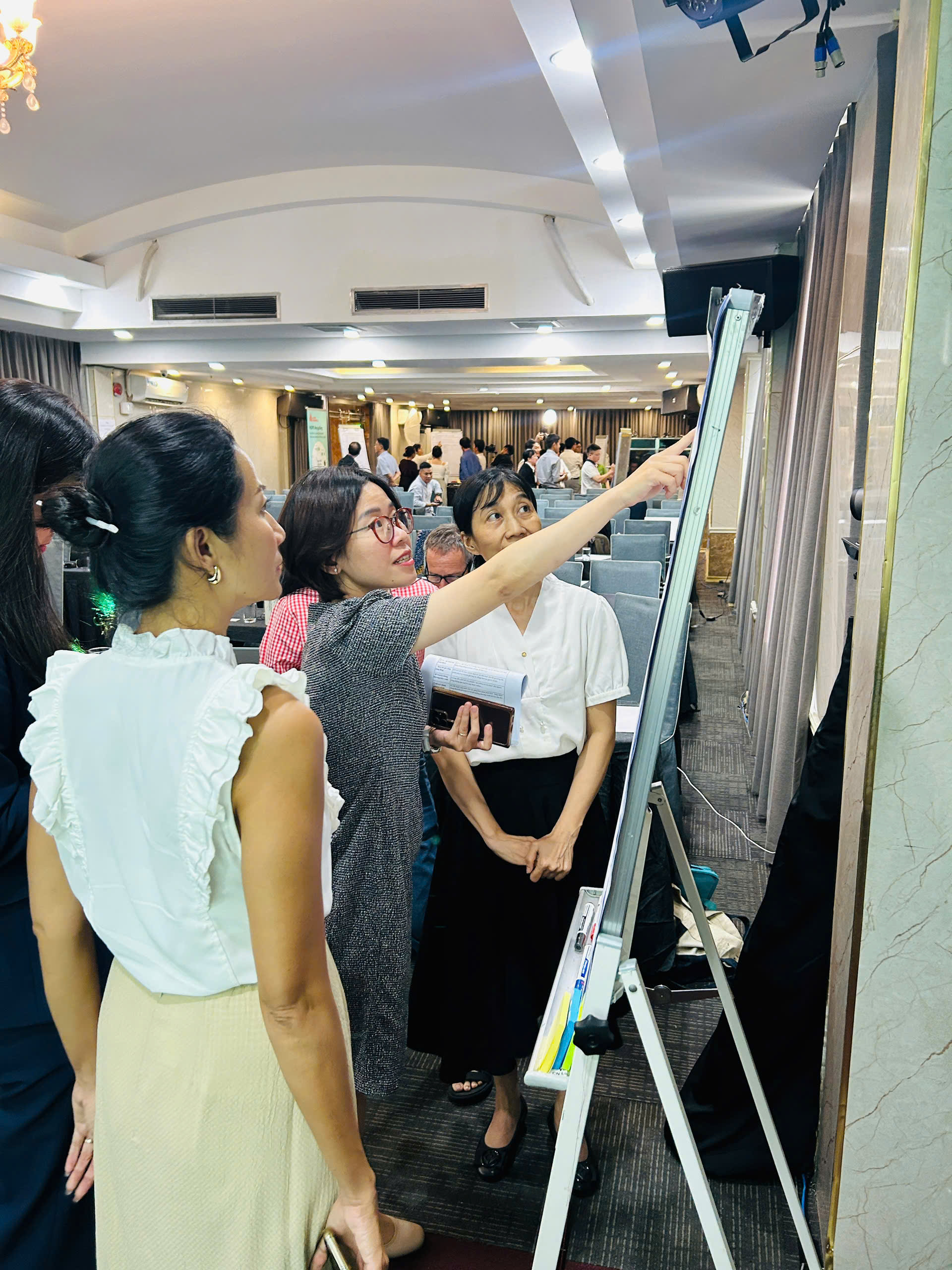
The in-depth sessions, tailored for the plastics and textile industries, concentrated on eco-design strategies, increasing the use of recycled materials, applying suitable recycling technologies (mechanical, chemical), and developing logistics systems for post-consumer product recovery. Businesses received practical guidance on developing circular business models, conducting life cycle assessments, and planning access to green finance to implement their transition solutions.
Mr. Haverman underscored the crucial role of multi-stakeholder coordination in this transition process, reaffirming UNDP’s commitment: “UNDP is dedicated to supporting Vietnam’s transition to a circular economy – through policy dialogue, designing and implementing initiatives, engaging the private sector, and promoting South-South learning.
Ms. Fleur Gribnau, First Secretary, Embassy of the Kingdom of the Netherlands in Vietnam, stated: “The Kingdom of the Netherlands is proud to support this project. I believe that this training program will enable businesses to better adapt to international legal frameworks, enhancing their green transition capacity so that their products become competitive and can be exported to the European market. Together, we can build a future that is not only prosperous but also sustainable and inclusive for generations to come.”
This training program is a key part of the ACE-Biz Project’s capacity-building efforts. It aims to help Vietnamese businesses align with international standards, embrace green consumption trends, and contribute to the national goals of green growth and sustainable development. Following the courses, participating businesses will continue to receive support through advanced learning sessions, connections with international experts, and participation in a “Demo Day.”
CONTACT:
- Phan Hương Giang
Media and Communications Analyst, Climate Change, Energy and Environment.
UNDP in Viet Nam
Email: phan.huong.giang@undp.org
Phone: 0948466688 - Đặng Thị Thục
Department of Energy Efficiency and Green Transition
Agency for Innovation, Green Transition and Industry Promotion, Ministry of Industry and Trade
Email: Thucđt@moit.gov.vn
Phone: 0947865868














